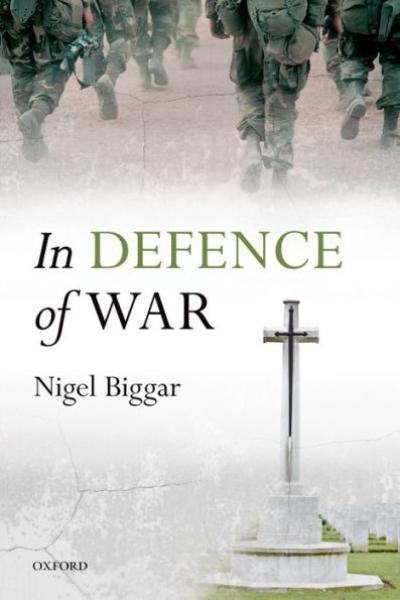Description
Peace, however, is not simple. Peace for some can leave others at peace to perpetrate mass atrocity. What was peace for the West in 1994 was not peace for the Tutsis of Rwanda. Therefore, against the virus of wishful thinking, anti-military caricature, and the domination of moral deliberation by rights-talk In Defence of War asserts that belligerency can be morally justified, even though tragic and morally flawed.
Recovering the Christian tradition of reflection running from Augustine to Grotius, this book affirms aggressive war in punishment of grave injustice. Morally realistic in adhering to universal moral principles, it recognises that morality can trump legality, justifying military intervention even in transgression of positive international law-as in the case of Kosovo. Less cynical and more empirically realistic about human nature than Hobbes, it holds that nations desire to be morally virtuous and right, and not only to be safe and fat. And aspiring to practical realism, it argues that love and the doctrine of double effect can survive combat; and that the constraints of proportionality, while real, are nevertheless sufficiently permissive to encompass Britain's belligerency in 1914-18. Finally, in a painstaking analysis of the Iraq invasion of 2003, In Defence of War culminates in an account of how the various criteria of just war should be thought together. It also concludes that, all things considered, the invasion was justified.
This is a major contribution to the literature on the morality of war, written in two voices, one argumentative, the other reflective and open to other perspectives a rich reflection on a wealth of literature, historical and contemporary, addressing the justifications for making war.--George Wilkes, Scottish Journal of Theology
In Defence of War is an excellent book ... Combining deep understanding of the just-war tradition with impressive knowledge of military history, this book makes a valuable contribution to the ongoing debate. I highly recommend it
-- James Anderson, Expository Times
This is a significant book. It provides a defense and clarification of just war theory within the Christian tradition through a series of extended engagements with Christian and secular critics of that theory. Biggar makes a clear and important case, and does so with impressive learning and literary style
--Kenneth R. Himes, Theological Studies
In Defence of War is a searching, challenging book. It deserves much discussion
--John Kelsay, Studies in Christian Ethics
Biggar's careful moral reasoning offers a model that, if followed, would deepen and mature the Christian discussion of the ethics of war and peace. And, if I may say, his book ought especially to be read by those who, at first blush, will be shocked or even appalled by its title... Many churchmen affirm what they understand to be the moral criteria of the just war tradition, but as a practical matter they cannot imagine a just use of armed force - which tends to subtract religious thinkers and their insights from the debates where policy is actually devised. If Nigel Biggar's book gets churchmen thinking seriously about war and peace again, that might change. --First Things: Religion and Public Life
This is a significant book. It provides a defense and clarification of just war theory within the Christian tradition through a series of extended engagements with Christian and secular critics of that theory. Biggar makes a clear and important case, and does so with impressive learning and literary style... This is as intellectually satisfying a book on the morality of warfare as is available today. --Theological Studies
There is a serious disconnect between scholars exploring just war theory and those engaging the Christian just war tradition. The language of religion is foreign to many in the secular camp thereby leaving us bereft of a rich and sometimes compelling perspective. Provocatively titled, In Defence of War brings this tradition to the fore. It is well worth the read. -- Mind
Product Details
- Oxford University Press, Brand
- Dec 1, 2014 Pub Date:
- 0198725833 ISBN-10:
- 9780198725831 ISBN-13:
- 374 Pages
- 9.08 in * 6.74 in * 0.75 in Dimensions:
- 1 lb Weight:




